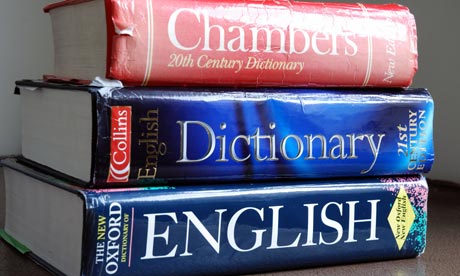Everyone involved in translation knows that terminology plays a key role in the profession: it seems fairly obvious really – finding the right word for the right situation is at the very heart of the translation process – but just how important is terminology mining?
Although figures can vary depending upon where you look – according to Arntz & Picht (1989), searching for terminology can take up to 75% of a translator’s time while Montalt & Gonzalez Davis (2007) go for around 50% – the generally accepted idea that over half of the translator’s time is spent digging for terms indicates that it is an area of huge importance, and one that merits an investment of time and effort to get right.
Coupled with the fact that conceptual and terminological accuracy is one of the key elements in many areas of professional translation (e.g. medical or legal translation) since the very value of the text often lies in its factual content, I thought it would be worthwhile dedicating this post to sharing a few pointers from my personal experience that will hopefully be of use to new and established translators alike.
While I am least partly bound by my language pairs (French & Italian to English) and my specialist areas, many of the points are of a more general nature and can be applied to the wider context.

Although translators usually specialize in a narrow field, it is rightly said that a key skill is to be an expert in finding the information you lack quickly. In a world of tight deadlines and information overload, finding the right information in the most timely manner has to be among the translator’s ultimate aims.
While both monolingual and bilingual print dictionaries and specialised glossaries remain a valuable tool for the working translator as they offer accurate results (my big French dictionary is never far from reach when it comes to quickly checking a general term), the constant improvement of online dictionaries and glossaries and the many benefits that they offer, such as portability, regular updates for terms in ever-changing disciplines (print versions can be out of date by the time they make it to market), or comprehensive searching in seconds, make then a valuable working tool.
Problems remain in finding online content that is reliable and, ultimately, it remains important that online resources are approached with a certain level of caution and results must often be critically examined by cross-referencing multiple sources and making use of native-speaker contacts.
That said, the links below (click on the sub-headings) are all resources that I have used extensively in my work with great success and each entry also includes notes on language pairs available and any other important information.

Starting with possibly the most obvious, and most frequently used resource beyond Google, WordReference simply has to be mentioned. This online multilingual dictionary has improved no-end in recent years and, while the quality still varies greatly between language pairs (French is excellent with multiple entries for most terms and a deep forum, while Italian is still only adequate), it can be counted on as a reliable source to be used for non-specialist terminology if your language pair is included.
Here is another resource that will be extremely familiar to most translators as the ProZ community represents an integral part of the modern profession. The terminology section is actively updated by the community and has millions of terms in Spanish, French, Italian, German, Chinese, Arabic, Japanese and other languages from medical, legal and other specialist areas. Another terminology forum similar to this exists at Translatorscafe.com and, although I have not used it myself, I know that many translators use it and regard it very highly.
Working between English, Spanish, German, French and Portuguese (at the time of writing – others are expected to follow), Linguee provides a dictionary and also searches 100 million bilingual texts from translated sites and other reliable documents to give results along with their context, making it a very powerful tool if your language pair is catered for.
Le grand dictionnaire terminologique (GDT)
In my experience, the GDT quite simply provides one of the best resources for specialised terminology available online. Terms can be filtered by domain, language (of which there are 9 available, including Latin…) among other parameters.
IATE – The EU’s multilingual term base
Due to the multilingual nature of the EU, where every document must be produced in all 23 official languages, and thanks to the organisation’s ever-increasing online presence, the IATE term base is quite staggering. Made up of over 8 million terms – many of which are of a specialist nature – and updated on a daily basis, any translator working with an official EU language should have this page bookmarked!
Euro Term Bank (ETB)
While the ETB’s 2.6 million terms seems meagre in comparison to the entry above, the availability of 33 languages and an undeniably user-friendly layout compared to many of these resources make it an attractive alternative worth considering.
There are many, many more excellent online glossaries and dictionaries out there (the UN’s UNTERM is just one extremely reliable resource that I have not included) so please don’t hesitate to send me recommendations. Hopefully, however, the links and the pointers given above will all be of use. Ciao!
Leave a comment